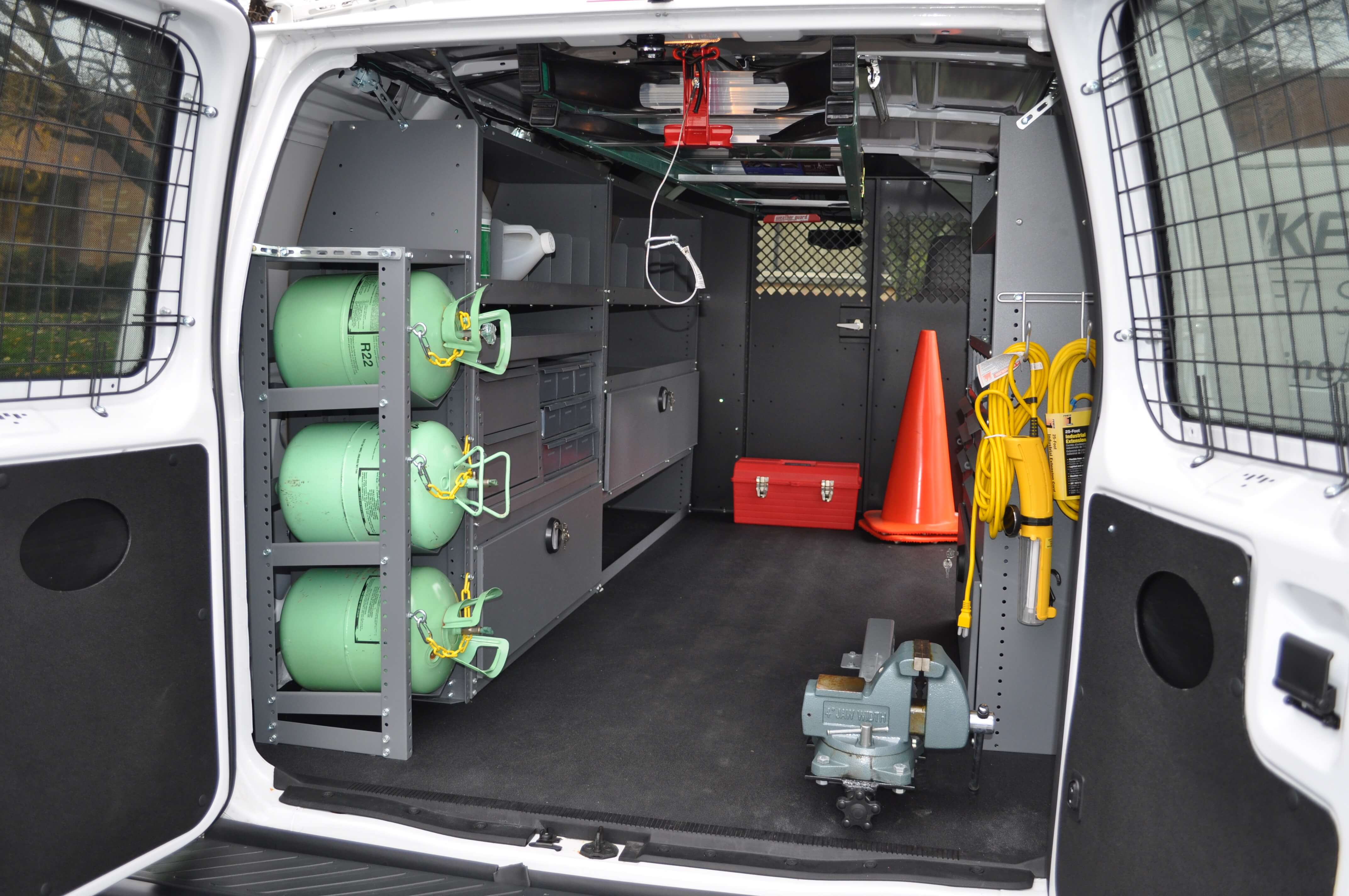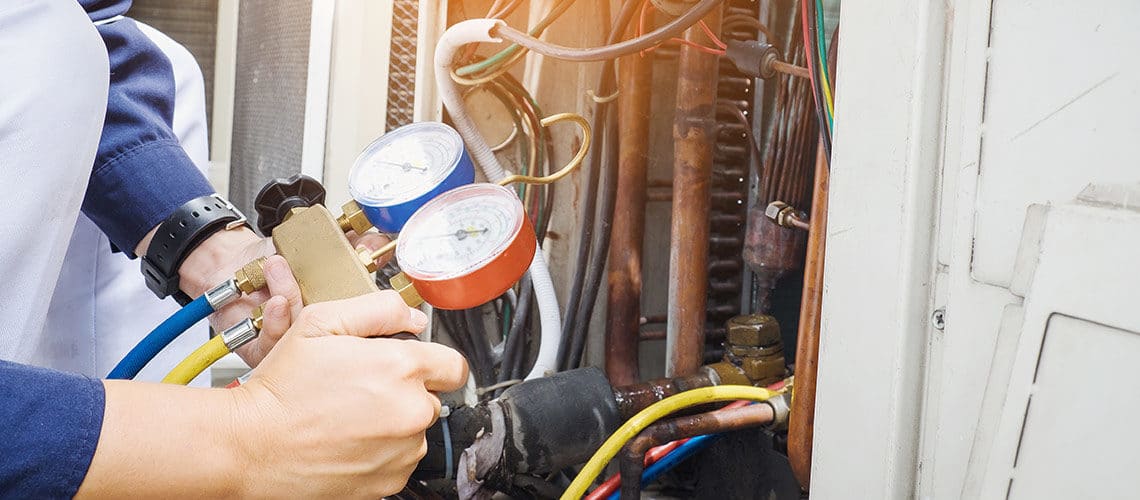Professional Services from DMAKS HVAC for Any HVAC Needs.
Professional Services from DMAKS HVAC for Any HVAC Needs.
Blog Article
Energy-Efficient A/c Solutions to Save Money On Energy Costs
As power prices proceed to climb, the importance of energy-efficient HVAC systems becomes significantly evident. These systems not just assure significant financial savings on energy expenses but also contribute to an extra lasting future by lessening energy usage. With different options offered, consisting of geothermal heatpump and ductless mini-splits, residential property owners deal with a wide variety of options that can enhance convenience and air high quality. Nevertheless, understanding the vital functions and maintenance requirements is vital to taking full advantage of these advantages. What factors should be focused on when selecting the ideal system for your demands?
Benefits of Energy-Efficient HVAC Equipments
Energy-efficient Heating and cooling systems use countless benefits that expand beyond simple expense savings. By consuming less energy, these systems contribute to reduce greenhouse gas discharges, helping to deal with environment modification and promote sustainability.
Additionally, energy-efficient heating and cooling systems commonly give boosted comfort degrees. A lot of these systems feature advanced technology that enables for much better temperature control and enhanced air high quality (DMAKS HVAC). This causes a healthier indoor atmosphere, which is especially essential for individuals with allergies or breathing issues
Additionally, investing in energy-efficient heating and cooling systems can improve property worth. As even more customers prioritize power effectiveness, homes and structures equipped with these systems might bring in greater quotes in the property market.
Sorts Of Energy-Efficient HVAC Options
Just how can homeowners and services choose the most suitable energy-efficient cooling and heating options for their needs? The market offers a variety of energy-efficient heating and cooling systems, each designed to enhance convenience while decreasing power consumption.
One alternative is the variable cooling agent circulation (VRF) system, which effectively manages the temperature in multiple zones within a building. This system adjusts its cooling agent circulation to match the preferred temperature level, leading to substantial power cost savings.
An additional popular selection is geothermal heatpump, which use the earth's secure temperature level to warm and cool spaces. By moving heat to and from the ground, these systems show outstanding performance, especially in modest climates.
In addition, ductless mini-split systems offer an energy-efficient choice for homes lacking ductwork. These systems permit zone-specific heating & cooling, lowering energy waste in vacant locations.
Lastly, high-efficiency heating systems and ac unit, with advanced SEER and AFUE scores, supply reputable environment control while consuming much less power than traditional designs. By evaluating these choices, home owners and companies can choose a HVAC system tailored to their certain demands and power efficiency goals.
Secret Functions to Take Into Consideration

Next, investigate the type of compressor used in the system. DMAKS HVAC. Variable-speed compressors can readjust their result to match the heating or cooling need, leading to enhanced convenience and power cost savings compared to single-speed designs. Furthermore, seek systems outfitted with clever thermostats that use programmable settings and remote accessibility, enabling better control over power intake
Another crucial function is the system's air filtration capability. High-efficiency filters can improve indoor air quality and decrease energy consumption by guaranteeing the system operates efficiently. Additionally, think about the sort of refrigerant used; modern-day systems often use environmentally friendly refrigerants that have a reduced ecological effect.
Finally, guarantee that the system is compatible with zoning technology, which permits for tailored temperature level control in different locations you could check here of your home, improving convenience while decreasing power usage.
Tips for Picking the Right System


Following, think about energy efficiency ratings, specifically the Seasonal Power Effectiveness Ratio (SEER) for cooling down systems and the Annual Fuel Application Effectiveness (AFUE) for heating systems. Higher rankings suggest greater performance, which can cause considerable savings on energy expenses in time.
Additionally, examine the kind of HVAC system that ideal fits your lifestyle and budget. Options consist of air conditioning, ductless mini-splits, and warmth pumps, each with its own collection of advantages and drawbacks.
Don't overlook the value of proper installment and sizing; an improperly sized system can lead to ineffectiveness and increased wear. Consult with an expert HVAC contractor to obtain professional suggestions tailored to your home's unique requirements. This thorough strategy will certainly ensure that you pick an energy-efficient cooling and heating system official website that fulfills your demands and budget successfully.
Upkeep for Optimal Effectiveness
As soon as the right HVAC system is in location, recurring upkeep becomes essential to making sure optimum efficiency and longevity. A well-kept system runs extra effectively, resulting in lower energy usage and minimized energy costs. Normal examinations and tune-ups need to be set up at the very least two times a year-- as soon as prior to the air conditioning period and as soon as prior to the home heating period.

Homeowners should also be alert concerning checking their HVAC system's performance. Uncommon sounds, fluctuating temperatures, or boosted energy expenses can suggest underlying problems that call for instant attention. By resolving these issues without delay, house owners can prevent expensive fixings and extend the life expectancy of their systems.
Buying a maintenance plan with a certified technician not only improves performance but also supplies tranquility of mind, knowing that the system is operating at its finest. DMAKS HVAC. Routine upkeep is therefore vital for maintaining power performance and reducing overall operational expenses
Verdict
To conclude, energy-efficient HVAC systems provide a practical option for lowering utility expenses while improving convenience and air top quality. By including innovative technologies and options such as geothermal heat pumps and ductless mini-splits, homeowner can achieve significant energy financial savings and add to ecological sustainability. Mindful factor to consider of system attributes and continuous upkeep additionally makes sure ideal performance, making energy-efficient systems a prudent investment for both financial and eco-friendly advantages.
Report this page